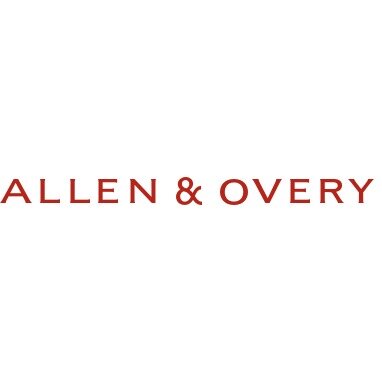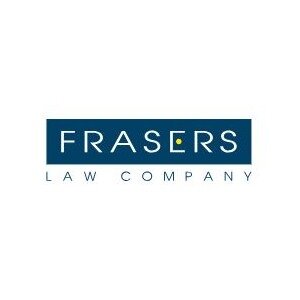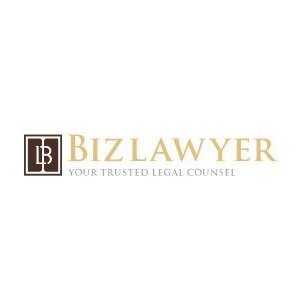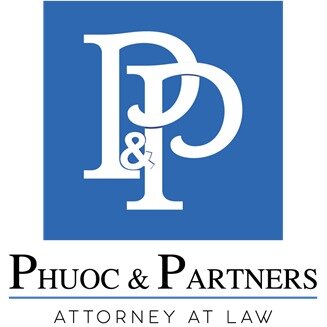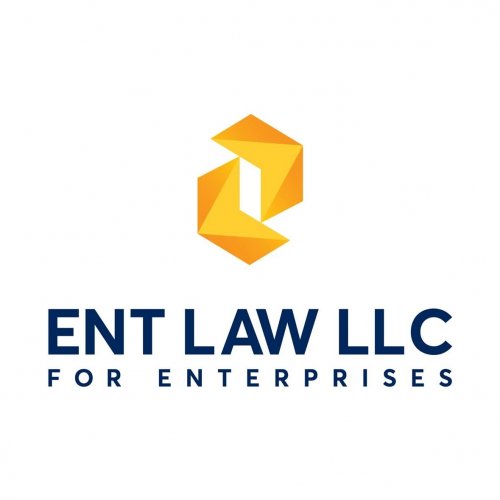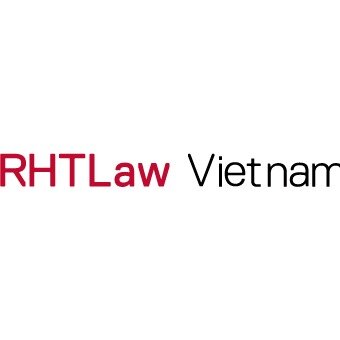Best Acquisition / Leveraged Finance Lawyers in Hanoi
Share your needs with us, get contacted by law firms.
Free. Takes 2 min.
List of the best lawyers in Hanoi, Vietnam
About Acquisition / Leveraged Finance Law in Hanoi, Vietnam
Acquisition and Leveraged Finance refers to the legal and financial structuring of loans or other sources of funding provided to companies for the purpose of acquiring other businesses or assets. In Hanoi, Vietnam, this sector is becoming more important as the country's growing economy gives rise to increasing mergers, acquisitions, and private equity transactions involving both domestic and international players. The legal framework here is influenced by Vietnamese laws, governmental guidance, and international best practices. Lawyers play a crucial role in facilitating such transactions, ensuring compliance, and managing the complex legal documentation and regulatory approval processes.
Why You May Need a Lawyer
There are many scenarios in which you may need legal support when dealing with Acquisition or Leveraged Finance in Hanoi, Vietnam. These include:
- Structuring and documenting the financing portion of an acquisition, ensuring the structure aligns with both commercial goals and local regulations
- Negotiating and drafting loan agreements, security documents, and guarantees
- Ensuring compliance with foreign ownership restrictions and other legal limitations in Vietnam
- Advising on regulatory approvals, licenses, or permits required by Vietnamese authorities
- Conducting legal due diligence on target companies or assets
- Managing risks related to foreign exchange, tax, and potential land or asset registration issues
- Addressing issues related to anti-money laundering, anti-corruption, and government scrutiny
- Handling disputes or issues that may arise during or after the transaction
Local Laws Overview
Acquisition and Leveraged Finance in Hanoi operates within the broader regulatory landscape of Vietnam. Some key local legal considerations include:
- Foreign Investment Regulations: The Law on Investment and the Law on Enterprises regulate foreign involvement in Vietnamese businesses and may impact the structure and documentation of acquisition finance.
- Banking and Lending Rules: Vietnamese law imposes certain restrictions on loans from foreign lenders, including registration requirements for foreign loans and foreign exchange controls.
- Security Interests: The Civil Code and relevant decrees provide the legal basis for taking security over different asset classes in Vietnam, such as land use rights, buildings, machinery, shares, or receivables.
- Anti-Money Laundering and Know Your Customer (KYC): Lenders and parties to finance transactions must comply with anti-money laundering laws and KYC obligations set by the State Bank of Vietnam and other authorities.
- Approval Processes: Some acquisition transactions, particularly in regulated sectors or where state-owned assets are involved, require approvals from governmental bodies.
- Tax Implications: Transactions may have significant withholding, capital gains, and VAT tax considerations, depending on the structure and parties involved.
- Legal Due Diligence: A key step is evaluating the legal status of the target’s assets, contracts, and compliance history to inform financing decisions.
Frequently Asked Questions
What is leveraged finance?
Leveraged finance is a form of lending where borrowers, often companies or investment firms, use a significant amount of debt relative to equity to finance the acquisition of other businesses or assets. The assets acquired typically serve as collateral for the loan.
Is leveraged buyout financing common in Vietnam?
Leveraged buyouts are less common in Vietnam than in more developed markets, but the trend is growing as the local financial sector matures and private equity activity increases. Legal complexities and restrictions relating to security and borrowing can make such transactions challenging when compared to other jurisdictions.
Can foreign investors participate in acquisition finance in Vietnam?
Yes, foreign investors and lenders can participate, but they must comply with specific Vietnamese laws on foreign investment, ownership restrictions, and registration of offshore loans. Legal advice is essential to navigate these requirements.
What types of security can be provided for acquisition loans in Vietnam?
Common forms of security include pledges over shares, mortgages over land use rights and buildings, security over accounts, inventories, receivables, and other movable assets. Registration of security interests is generally required for enforceability.
Are there restrictions on borrowing in foreign currency?
Yes, Vietnamese law restricts enterprises from borrowing in foreign currency except for specific permitted purposes, and all foreign loans must be registered with the State Bank of Vietnam. Exchange control regulations also apply.
What is the process for registering security interests?
Depending on the type of security, registration may be required with the National Registration Agency for Secured Transactions, the Land Registration Office, or other competent authorities. Proper registration is vital for the enforceability of security in case of default.
What taxes are relevant in an acquisition financed transaction?
Potential taxes include value-added tax, capital gains tax, withholding tax on interest payments to foreign lenders, and stamp duties. Proper structure and legal advice are necessary to manage tax liability.
Does an acquisition require government approval?
Some acquisitions, especially in regulated sectors, those involving state-owned enterprises, or where a foreign investor exceeds certain ownership thresholds, will require review or approval by competent Vietnamese authorities.
What are the key risks in acquisition finance transactions?
Risks include enforceability of security, regulatory changes, foreign exchange risks, legal due diligence findings, anti-money laundering issues, and post-acquisition integration challenges.
How can a lawyer assist in an acquisition finance deal?
A lawyer assists by conducting due diligence, structuring the transaction, drafting and negotiating contracts, securing necessary approvals, registering security interests, advising on tax matters, and ensuring overall compliance with the law.
Additional Resources
If you are seeking further guidance or help, these resources may be useful:
- Ministry of Planning and Investment (MPI): Responsible for investment policies, including foreign investment registration and approval.
- State Bank of Vietnam (SBV): Regulates banking activities, foreign loans, and currency controls in Vietnam.
- Vietnam Lawyers Federation: An organization providing lawyer referral services and legal information.
- Hanoi Department of Justice: Local body managing legal services and public notary requirements.
- Vietnam Chamber of Commerce and Industry (VCCI): Supports businesses with legal advocacy, information, and dispute resolution.
Next Steps
If you need legal assistance with Acquisition or Leveraged Finance in Hanoi, Vietnam, here is how you can proceed:
- Identify your specific needs and goals for the acquisition or financing transaction.
- Gather all relevant information and documents about the parties involved, financial statements, and proposed structure.
- Consult with a Vietnamese law firm or experienced legal advisor specializing in acquisition and finance. Verify their expertise in handling cross-border transactions if foreign involvement is anticipated.
- Request a preliminary assessment of the legal and regulatory issues specific to your transaction.
- Develop a timeline and checklist with your lawyer for key steps such as due diligence, drafting agreements, regulatory approvals, and closing the deal.
- Stay engaged throughout the process and seek regular updates from your legal and financial advisors.
Legal support not only helps manage risks and ensure compliance but also adds substantial value in complex acquisitions or leveraged finance transactions in Hanoi and across Vietnam.
Lawzana helps you find the best lawyers and law firms in Hanoi through a curated and pre-screened list of qualified legal professionals. Our platform offers rankings and detailed profiles of attorneys and law firms, allowing you to compare based on practice areas, including Acquisition / Leveraged Finance, experience, and client feedback.
Each profile includes a description of the firm's areas of practice, client reviews, team members and partners, year of establishment, spoken languages, office locations, contact information, social media presence, and any published articles or resources. Most firms on our platform speak English and are experienced in both local and international legal matters.
Get a quote from top-rated law firms in Hanoi, Vietnam — quickly, securely, and without unnecessary hassle.
Disclaimer:
The information provided on this page is for general informational purposes only and does not constitute legal advice. While we strive to ensure the accuracy and relevance of the content, legal information may change over time, and interpretations of the law can vary. You should always consult with a qualified legal professional for advice specific to your situation.
We disclaim all liability for actions taken or not taken based on the content of this page. If you believe any information is incorrect or outdated, please contact us, and we will review and update it where appropriate.






